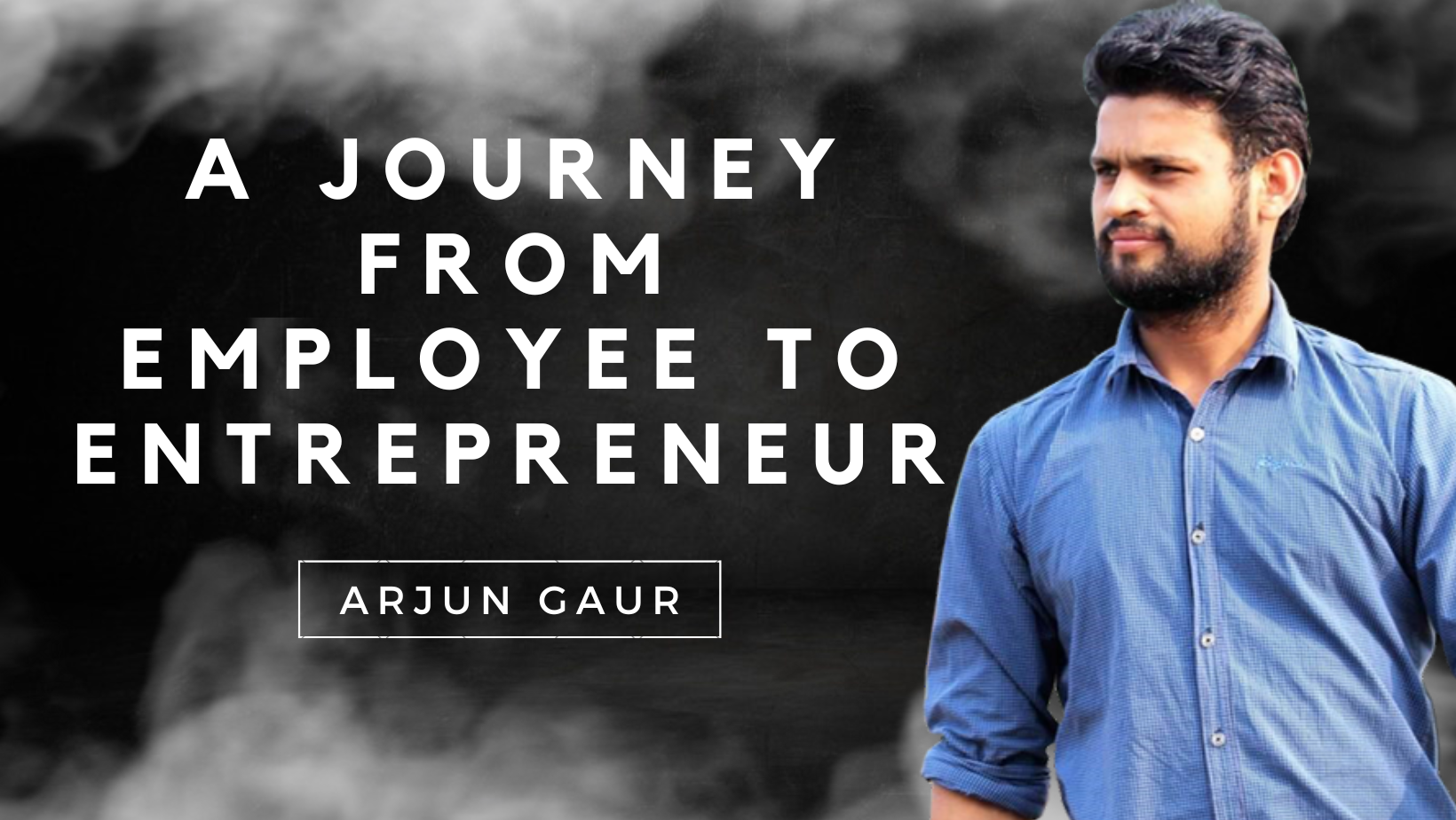A Journey from Employee to Entrepreneur
Did you know that every second person who is employed dreams of opening his own business every day? But how many such people are there who have been able to fulfil that dream?
Even when I was living the life of an employee, even at every second and moment I thought like this. But it is also true that dreams are purified not just by thinking but by action. Opening my startup after so many years as an employee journey along with family responsibilities was not easy for me.
Through this blog, I will share some of my learning and experiences with you. Maybe this will be helpful somewhere on your journey.
The three most essential things to start an entrepreneurial journey are:
Fearless Attitude: Having a fearless attitude is crucial in the entrepreneurial journey. It means approaching challenges and uncertainties with courage, confidence, and a willingness to take risks. A fearless attitude doesn't imply the absence of fear but rather the ability to confront and overcome it. It allows entrepreneurs to make bold decisions, learn from failures, and persist in the pursuit of their goals.
Positive Mindset: Maintaining a positive mindset is essential for success in any endeavour, including entrepreneurship. It involves cultivating an optimistic and constructive outlook, even in the face of challenges. A positive mindset can help entrepreneurs stay motivated, navigate difficulties more effectively, and foster a resilient approach to setbacks.
Every day improving your innovation skills: To enhance your innovation skills daily, it's important to engage in activities that stimulate creativity, problem-solving, and critical thinking. This might involve continuous learning, exploring new ideas, seeking inspiration from various sources, and actively participating in projects that challenge your innovative abilities. Consistent effort and a proactive approach are key to honing and refining your innovation skills over time.
In the pursuit of personal and professional growth, many individuals find themselves at a crossroads, contemplating a shift from the familiar territory of being an employee to the uncharted waters of entrepreneurship. This transition is often fueled by a desire for autonomy, creative freedom, and the potential for unlimited financial success. In this blog post, we will explore the resolution and transformative journey of individuals who make the leap from the structured world of employment to the dynamic realm of entrepreneurship.
- The Resolution: Making the decision to become an entrepreneur is not one to be taken lightly. It requires a deep introspection of one's goals, passions, and risk tolerance. The resolution to transition from employee to entrepreneur often stems from a burning desire to build something of one's own, to bring a unique vision to life, and to take control of one's destiny. It's a commitment to facing challenges head-on and embracing the uncertainty that comes with forging one's path.
- Identifying Passion and Purpose: Successful entrepreneurs often find their calling in areas where their passion intersects with a market need. The transition from being an employee allows individuals to align their work with their true interests and values. This identification of passion and purpose becomes the driving force behind the long hours, the inevitable setbacks, and the persistent pursuit of excellence.
- Skill Transformation: While the skills acquired during employment are valuable, the entrepreneurial journey demands a different set of abilities. Entrepreneurs must wear multiple hats – from marketing and finance to operations and customer service. The transition involves a continuous process of learning and skill acquisition. It's not just about being an expert in one field but becoming a versatile and adaptable problem solver.
- Risk Management and Financial Planning: Leaving the security of a regular paycheck to start a business involves a financial risk. Entrepreneurs must develop a robust financial plan that includes a buffer for unforeseen challenges. This includes understanding the financial implications of the transition, setting realistic expectations, and having contingency plans in place.
- Building a Support System: Entrepreneurship can be a lonely journey, and having a strong support system is crucial. This includes family, friends, mentors, and fellow entrepreneurs who can provide guidance, encouragement, and a listening ear during challenging times. Networking and seeking advice from those who have tread similar paths can be invaluable.
- Adapting to Uncertainty: Entrepreneurship is synonymous with uncertainty. The transition involves embracing change, adapting to unexpected challenges, and learning from failures. The ability to pivot, innovate, and persevere is what sets successful entrepreneurs apart.
The journey from employee to entrepreneur is a transformational process that requires courage, resilience, and a strong sense of purpose. It is a path marked by self-discovery, skill development, and a willingness to face the unknown. By understanding the challenges and embracing the opportunities that come with entrepreneurship, individuals can navigate this transition successfully and unlock their full potential as business owners and visionaries.

